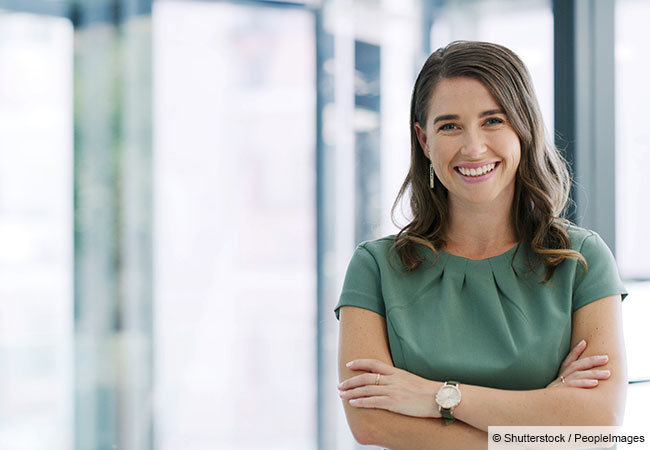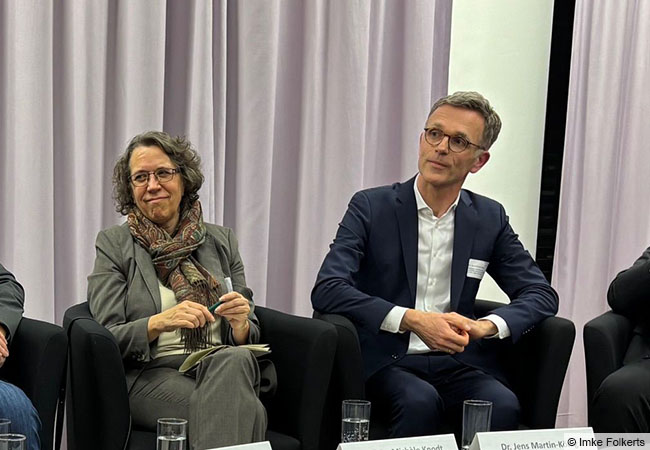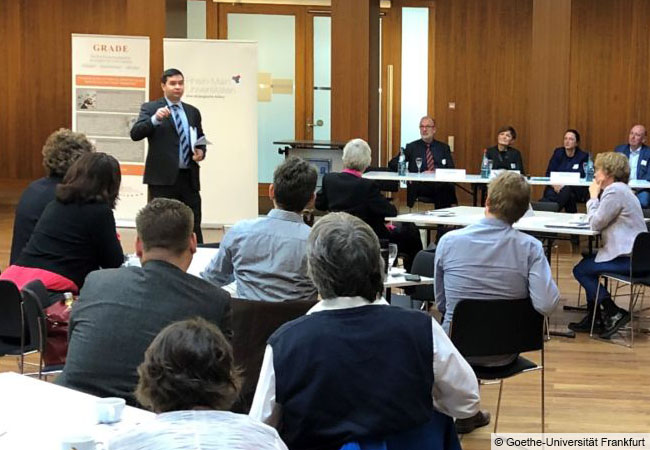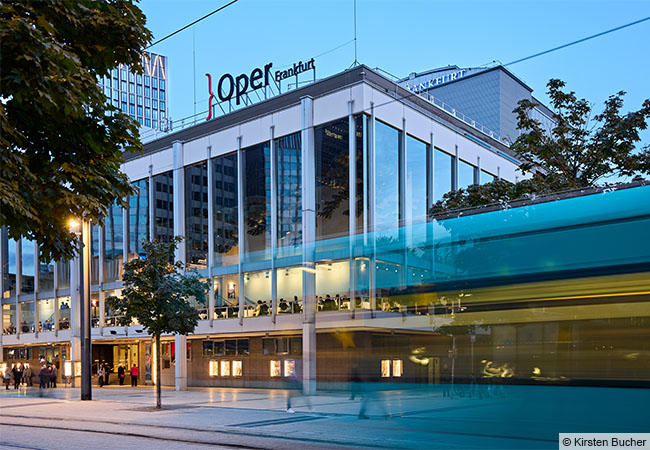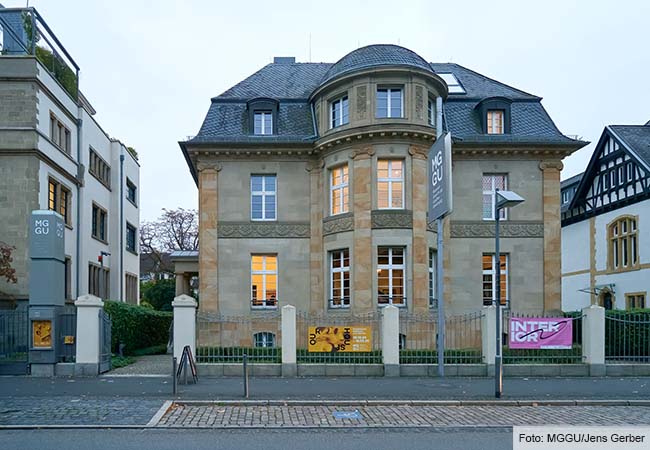Five workshops, around 150 participants and over 1,500 ideas – these are the positive results from Goethe University’s sustainability workshops held during the summer semester 2024. Members of all status groups at the university were invited by President Prof. Enrico Schleiff and the Sustainability Office to attend, and discussed possible steps and measures for the university’s sustainability strategy.
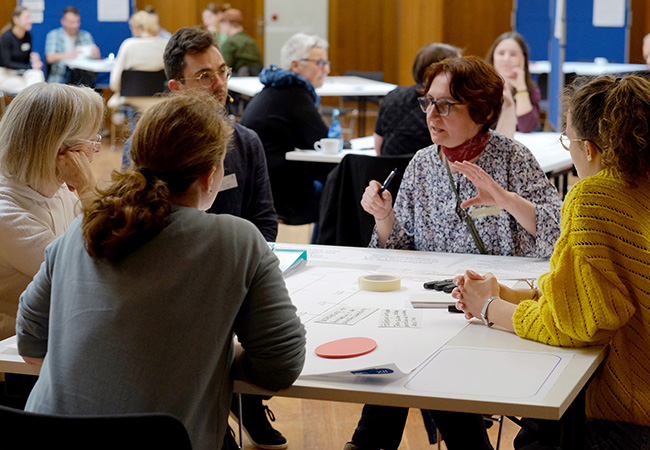
How can we make procurement at Goethe University more sustainable? What sort of incentive schemes at the institutional level would encourage research that enhances sustainability? How can we shape practical learning for sustainability? These and other questions were addressed by participants at the five sustainability workshops on the following areas for action: degree study and teaching, operation, research, transfer and governance. The workshops aimed to flesh out the four strategic goals for sustainability at Goethe University and to identify ideas and measures for achieving them.
President Enrico Schleiff was very pleased with the results from the workshops: “Goethe University is playing an active role in shaping the overall social and ecological transformation. We are researching answers to the questions about our coexistence, sending out impulses and accelerating innovations – both social and technological ones. The sustainability workshops were an impressive demonstration of just how many ideas are generated when we bring our perspectives together.”
The workshops collected numerous impulses for new approaches in all aspects of sustainability at Goethe University, and also identified room for improvement – for example in recognizing student activities that promote sustainability, and in evaluating operational sustainability measures. Overall it became clear that as a complex cross-cutting topic, sustainability demands binding requirements from the university but also requires commitment and action from every single person on campus.
The fact that many people already want to take action on sustainability is also shown by the keen interest in the sustainability workshops. Fabienne Beck, the new Head of the Sustainability Office, sees the events as successful: “We’re delighted that the sustainability workshops were so popular – and that all the status groups were represented at each event. We’ve collected about 1,500 very good suggestions which we can now work with. It’s not going to be a walk in the park, but the commitment of the participants and the positive feedback motivate us and indicate that we’re on the right track.”
Yet the completion of the sustainability workshops does not mean that the participatory elaboration of the sustainability strategy is finished. The next step is that the Sustainability Office collates all the suggestions from the workshops, and together with representatives of the faculties and the central administration it will identify the main ideas and measures and examine their feasibility. Here, too, university members should have the chance to contribute. President Enrico Schleiff stressed, “The perspectives of all status groups here at our university are incredibly important, both for developing an ambitious strategy and for achieving our sustainability goals.”
The Sustainability Office will then work together with relevant bodies and groups to formulate Goethe University’s sustainability strategy, with the aim of publicly approving it by spring 2025.
Strategic goals for sustainability
Based on Goethe University’s understanding of sustainability, strategic sustainability goals have been defined for the areas of research, degree study and teaching, transfer, operation and governance, in cooperation with the responsible members of the Executive Board and the departments. On April 22, 2024, these strategic goals were presented at the kick-off event on the sustainability strategy.
Strategic goal 1: Goethe University applies research and transfer to actively shape the overall social and ecological transformation.
Strategic goal 2: Goethe University enables its students to acquire education for sustainable development, thus educating them to be sustainability multipliers in research and practice.
Strategic goal 3: Goethe University’s campus is designed to be social and ecological while being climate-friendly and offering equal opportunities, and Goethe University will be climate-neutral by 2038 in line with the goals of the Paris Agreement on climate change.
Strategic goal 4: Goethe University practices a “culture of sustainability” and has mainstreamed sustainability in its structure and strategy.



